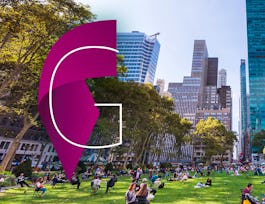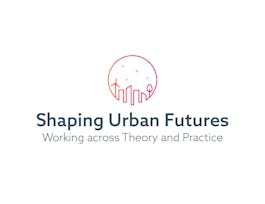This course will provide students with an introduction to tools and concepts for a better understanding of the importance of the neighborhood as part of a sustainable city. This will include a careful look at the natural context of successful neighborhoods. An evaluation of important components and structure that create a sustainable neighborhood. Complete neighborhoods can provide their residents with pedestrian access to schools, daycare, recreational centers, and a variety of open spaces, as well as opportunities for food production. These and other aspects of sustainable neighborhoods will be carefully evaluated in this course. There will also be case studies of neighborhood development projects in Houston, TX, San Antonio, TX, and Chattanooga, TN. And lastly, the course will review the importance of zoning on sustainable neighborhoods with a particular focus on form-based zoning.



Sustainable Neighborhoods
This course is part of Sustainable Cities Specialization

Instructor: William Roper
Sponsored by Mojatu Foundation
3,291 already enrolled
(69 reviews)
Details to know

Add to your LinkedIn profile
3 assignments
See how employees at top companies are mastering in-demand skills

Build your subject-matter expertise
- Learn new concepts from industry experts
- Gain a foundational understanding of a subject or tool
- Develop job-relevant skills with hands-on projects
- Earn a shareable career certificate


Earn a career certificate
Add this credential to your LinkedIn profile, resume, or CV
Share it on social media and in your performance review

There are 3 modules in this course
Every neighborhood has its own unique characteristics, culture, special assets, and citizen interests. In this module you will analyze five elements of natural context for successful sustainable neighborhoods. There will also be a case study of the Buffalo Bayou Project in Houston, TX.
What's included
4 videos2 readings1 assignment1 discussion prompt
Lesson 1 of this module addresses six neighborhood components that are important for sustainable cities. Lesson 2 addresses seven additional neighborhood components that are important to sustainable cities. The module concludes with Lesson 3, which addresses the Pearl District project that took an abandoned brewery and changed it into a vibrant asset in a San Antonio neighborhood.
What's included
6 videos1 reading1 assignment
This module begins by addressing six neighborhood structures that are important for sustainable cities. We then conclude by evaluating a case study of the 21st Century Waterfront Project in Chattanooga, Tennessee.
What's included
5 videos1 reading1 assignment
Instructor

Offered by
Why people choose Coursera for their career




Learner reviews
69 reviews
- 5 stars
78.26%
- 4 stars
15.94%
- 3 stars
5.79%
- 2 stars
0%
- 1 star
0%
Showing 3 of 69
Reviewed on Feb 21, 2023
Very informative and well laid out syllabus with great project case studies that increased my understanding of the concepts taught.
Reviewed on Jun 9, 2023
Some details are repetitive, but good examples and breakdowns of case studies and new concepts.
Recommended if you're interested in Physical Science and Engineering

Lund University

École Polytechnique Fédérale de Lausanne

University of Maryland, College Park

Indian Institute for Human Settlements

Open new doors with Coursera Plus
Unlimited access to 10,000+ world-class courses, hands-on projects, and job-ready certificate programs - all included in your subscription
Advance your career with an online degree
Earn a degree from world-class universities - 100% online
Join over 3,400 global companies that choose Coursera for Business
Upskill your employees to excel in the digital economy


